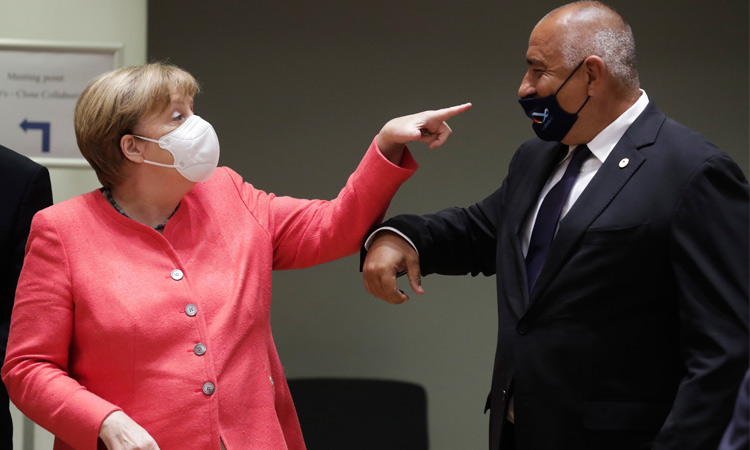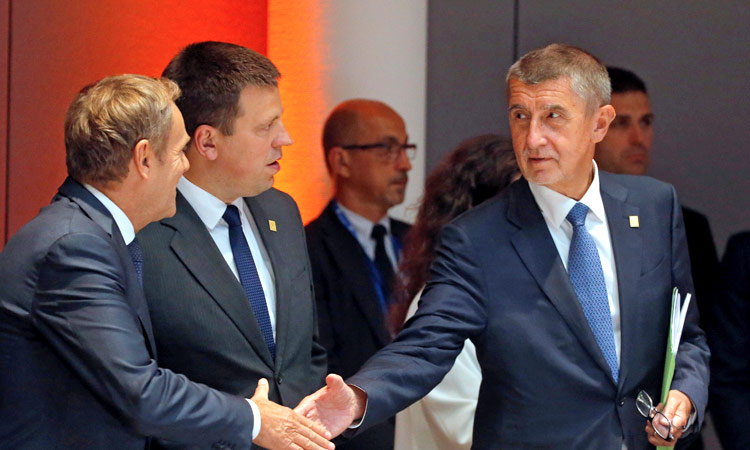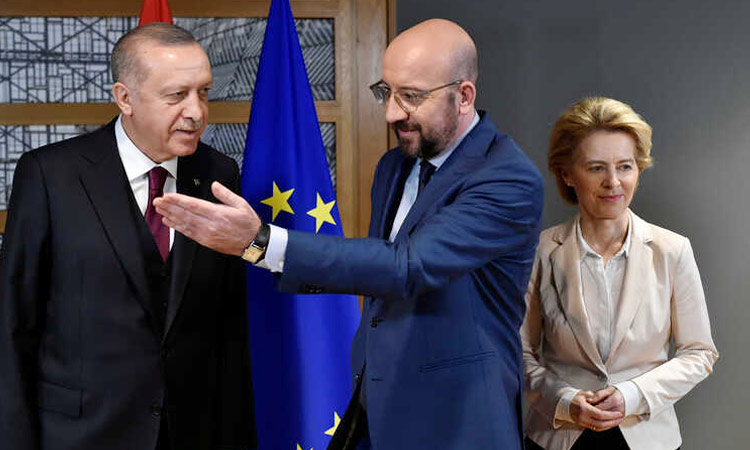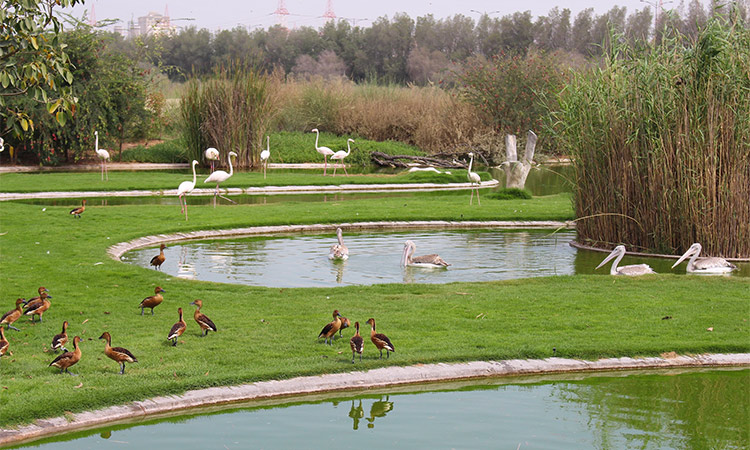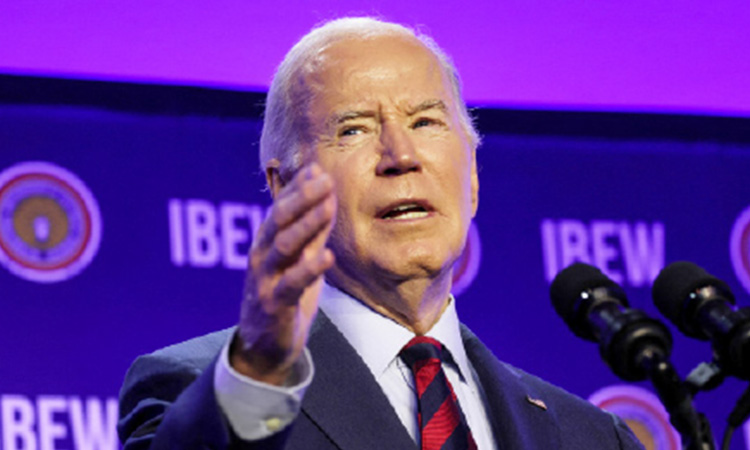Skirting Conflagration
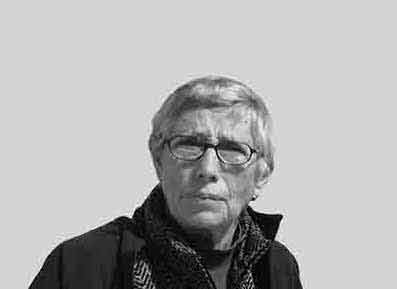
Michael Jansen
The author, a well-respected observer of Middle East affairs, has three books on the Arab-Israeli conflict.
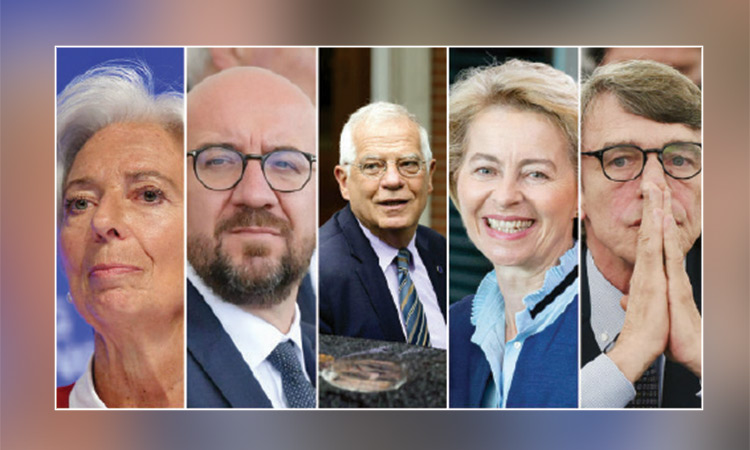
Newly-elected top EU leaders Christine Lagarde (left), Charles Michel, Josep Borrell Fontelles, Ursula von der Leyen and David Sassoli.
The newly-elected top European Union (EU) leaders who take office on Nov.1 are no more likely to adopt and implement region-friendly policies than their predecessors were. The constraints remain the same: they have been chosen to head a European body by the Union’s diverse members and have to navigate between leftist, liberal and right-wing governments when formulating policies.
European Commission President Ursula von der Leyen is the first woman to rise to this post and the first German to serve since its initial incumbent Walter Hallstein ended his term in July 1967. Since then, the presidency has been held by Belgium, Italy, France, Britain, Luxembourg, Spain and Portugal.
Heavyweights Britain and France held the presidency for one and two terms, respectively, as the EU is shy of being dominated by larger, more populous members.
Germany, with the largest population, well developed industries and strong economy, had not sought the presidency for half a century. German Chancellor Angela Merkel, who is due to step down in 2021, was touted as a potential candidate by Luxembourg and France.
She preferred to nominate Defence Minister Ursula von der Leyen, whose election by a slim majority gave the top job to a centre right figure for the next five years. Von der Leyen is neither a consensus seeker like Merkel nor a stock conservative, but can support socialist as well as liberal policies.
Born in 1958 in Brussels where her father was a European civil servant, she is a native speaker of German and French as well as fluent in English.
She is a physician married to aristocratic medical professor Heiko von der Leyen. They have seven children. She has had a 29-year career in Merkel’s Christian Democratic Union and served in all her cabinets (2005-19) in different ministries, concluding with defence. She has been criticised over the award of contracts which are under investigation and will require her to appear in court.
Her regional record is not totally pro-Israeli. She visited Israel in 2015 and was warmly welcomed by Prime Minister Binyamin Netanyahu. She opposed Israel by supporting the agreement with Iran over the dismantling of 90 per cent of its nuclear programme in exchange for lifting sanctions, but backed German arms and submarine sales to Israel.
Due to the rise of Nazism, World War II and the mass murder of Jews and other minorities by Germany during the war, Germany and German politicians cannot criticise Israel or adopt anti-Israeli policies. Berlin views politics in this region through the prism of Israel. This is true, also, of the Trump regime and, to a large extent, of all US administrations. Britain, France, Italy, Spain and other EU members do not face this limitation and are, therefore, freer to advance policies inimical to Israel.
This is true of Europe’s incoming top diplomat, Josep Borrell Fontelles, of Spain’s ruling Socialist Party who is currently his country’s foreign minister. In mid-May 2018, he condemned Israel’s fatal shooting of 62 Palestinians demonstrating on the Gaza border as Israel celebrated the shift of the US embassy from Tel Aviv to Jerusalem. He said the celebrations were “covered in blood (and) reflected the dehumanisation of the Palestinians by a large part of the Israeli political class and society.” He condemned Netanyahu’s “warlike arrogance.”
Last September, Borrell called for recognition of a Palestinian state, saying, “It is obvious the situation in Palestine cannot continue as it is. If the EU is not able to reach a unanimous decision, then each to their own,” suggesting Madrid would go ahead. He castigated the Trump regime for cutting funding to UNRWA, the UN agency caring for Palestinian refugees, and said the biased US can no longer mediate in the peace process.
Like Von der Layen and his predecessor Federica Mogherini, Borrell supports the Iran nuclear deal which Trump is trying to destroy.
Borrell was born in 1947 in a small Catalan village near the Pyrenees where his father owned a bakery. In 1964 he moved to Barcelona where he studied engineering. After graduation, he followed many young Socialists by volunteering at a kibbutz in Israel where he met his French wife. He went on to study mathematics and computer science in Spain and the US and eventually to teach math and aeronautical engineering. He joined the Socialist Workers’ Party in 1975 during the country’s transition from dictatorship to democracy. I
n the 1980s he served in Spain’s first Socialist government since the Spanish civil war (1936-39). Out of office, he became head of the opposition and played a role in European politics. In 2004 he was elected president of the European Parliament. By this time, his views on Israel had evolved. A patriotic Catalan opposed to Catalonian independence, he is known for plain speaking and is a strong critic of Donald Trump.
Although marginalised by regional uprisings and warfare, Palestine remains the touchstone of European regional policies which are mired in colonial attitudes forged by decades of domination and manipulation. If politicians can empathise with Palestinians — who face the Western-inflicted never-ending Israeli occupation — there is some hope that other Arabs, who are enduring one catastrophe after another, could also secure understanding and support. This is all the more important during these troubled times when Israel remains the main troublemaker and threat to the beleaguered people of the region.
While divisions within Europe prevent the EU from acting as a counterweight to the malignant US, the bloc can try to use its considerable soft power to mitigate the destructive impact of the Trump regime’s wrong-headed policies that are harming civilians in Palestine, Syria, Iraq, Iran and the Gulf.
Europe has, so far, failed to prevent the escalation of tensions in the Gulf due to Donald Trump’s withdrawal from the 2015 nuclear deal. It is imperative that Europe’s new leaders do not succumb to the US policy of “maximum economic pressure” on Iran that could lead to regional conflagration.
